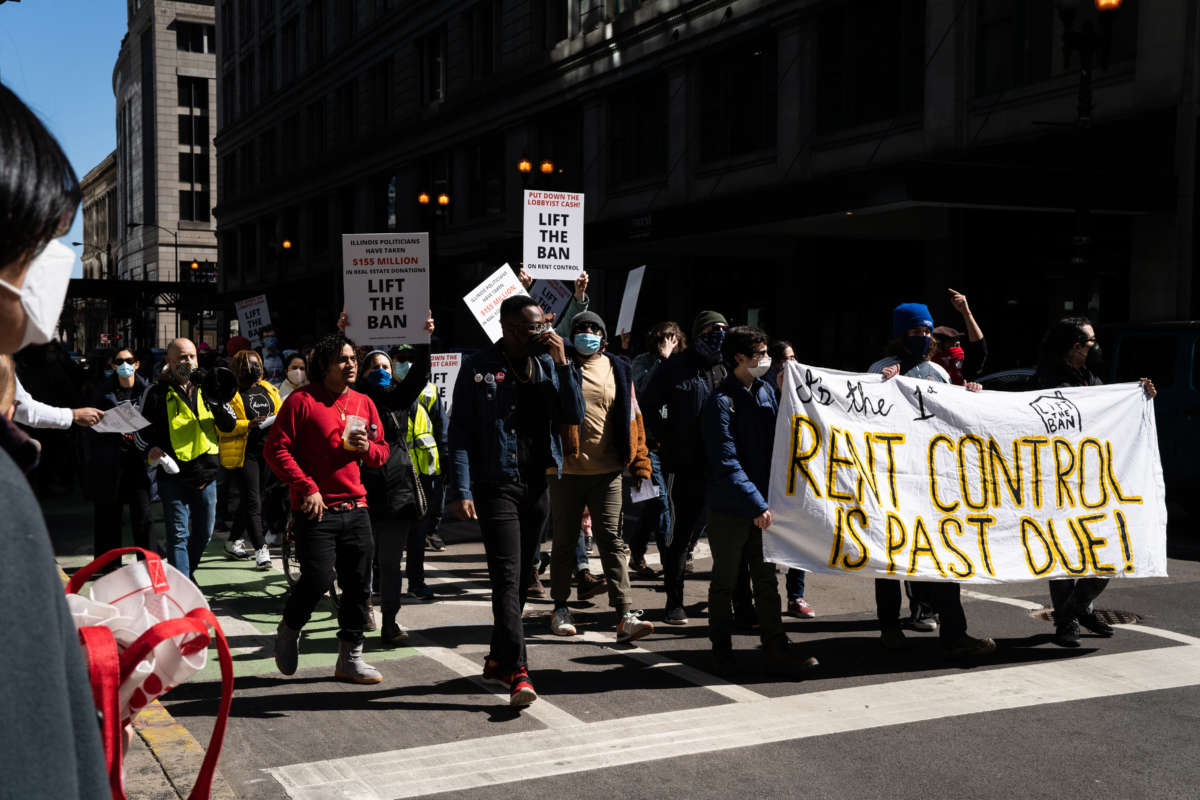Working full time on the federal minimum wage of $7.25 isn’t enough for workers to afford rent for a two-bedroom home anywhere in the United States, nor is it enough to afford a one-bedroom home in the vast majority of U.S. counties, a report from the National Low Income Housing Coalition finds.
The report also finds that, in fact, being able to afford a “modest” two-bedroom rental home anywhere in the U.S. is out of reach for a majority of American workers.
In order to afford the average two-bedroom rental in the country, a worker must make $24.90 an hour, or over $51,000 a year. That means nearly 60 percent of American workers wouldn’t be able to afford a two-bedroom home. The report defines affordability for rent as no more than 30 percent of a person’s income, a common standard.
The report comes as the nation nears 12 years without having raised the minimum wage, the longest time the country has gone without raising the standard since it was created. Lawmakers, led by progressives like Sen. Bernie Sanders (I-Vermont) and at the urging of Fight for $15 advocates have been fighting to raise the minimum wage to $15 an hour but have been shot down repeatedly by centrists like Sen. Joe Manchin (D-West Virginia) and Republicans.
But, as the report finds, even $15 an hour isn’t quite enough for workers to afford adequate housing in many parts of the U.S. After all, workers and advocates have been fighting for a $15 minimum wage threshold since 2012 — nearly 10 years now.
In 24 states and Puerto Rico, the report finds, a full-time worker must make between $15 and $20 an hour to afford a two-bedroom home. In 14 states, meanwhile, workers must make between $20 and $25 an hour to afford a two-bedroom; and in 10 states and D.C., the standard is raised to at least $25 an hour.
Most minimum wage workers, in other words, must make double or triple the federal minimum wage to be able to afford rent for a two-bedroom apartment. Otherwise, “the average minimum wage worker must work nearly 97 hours per week to afford a two-bedroom rental home or 79 hours per week to afford a one-bedroom rental home at the average fair market rent,” the report says.
In order to help relieve these burdens on workers, the National Low Income Housing Coalition recommends that Congress take steps like expanding rental assistance and invest significantly in building more affordable housing. The report also notes that rent affordability problems have only gotten worse during the pandemic.
“COVID-19 was an economic catastrophe for many households, disproportionately people of color, precisely because so many already could not afford their homes,” the report reads. “Long after the public health dangers and economic crisis gradually recede, low-wage workers and low-income renters will continue to be in a precarious position, until we create permanent solutions to widespread housing unaffordability.”
While the pandemic has created crises for low- and middle-class households, however, the rich have only gotten astronomically richer. A new report by the Institute for Policy Studies (IPS) and Americans for Tax Fairness (ATF) has found that, over the course of the pandemic, the combined wealth of U.S. billionaires has surged from an already-high $2.9 trillion to $4.7 trillion, an increase of nearly $1.8 trillion, or about 62 percent. The surge in billionaires’ wealth, the organizations note, could pay for nearly the entirety of president Joe Biden’s American Families Plan, or about half of Democrats’ new reconciliation bill.
Indeed, the recent surge in wealth for the nation’s wealthiest alongside the 2 percent decrease in workers’ salary since 2019 has created a massive divide between the rich and the poor in the U.S. that only continues to grow.
The bottom half of U.S. earners, or about 165 million Americans, collectively held about $2.2 trillion in wealth as of last year. That means the nation’s 713 billionaires, according to the IPS/ATF report, now hold over double the amount of wealth that the entire bottom half of American earners do — all while paying less than the average worker in federal taxes.
Our most important fundraising appeal of the year
December is the most critical time of year for Truthout, because our nonprofit news is funded almost entirely by individual donations from readers like you. So before you navigate away, we ask that you take just a second to support Truthout with a tax-deductible donation.
This year is a little different. We are up against a far-reaching, wide-scale attack on press freedom coming from the Trump administration. 2025 was a year of frightening censorship, news industry corporate consolidation, and worsening financial conditions for progressive nonprofits across the board.
We can only resist Trump’s agenda by cultivating a strong base of support. The right-wing mediasphere is funded comfortably by billionaire owners and venture capitalist philanthropists. At Truthout, we have you.
We’ve set an ambitious target for our year-end campaign — a goal of $250,000 to keep up our fight against authoritarianism in 2026. Please take a meaningful action in this fight: make a one-time or monthly donation to Truthout before December 31. If you have the means, please dig deep.
